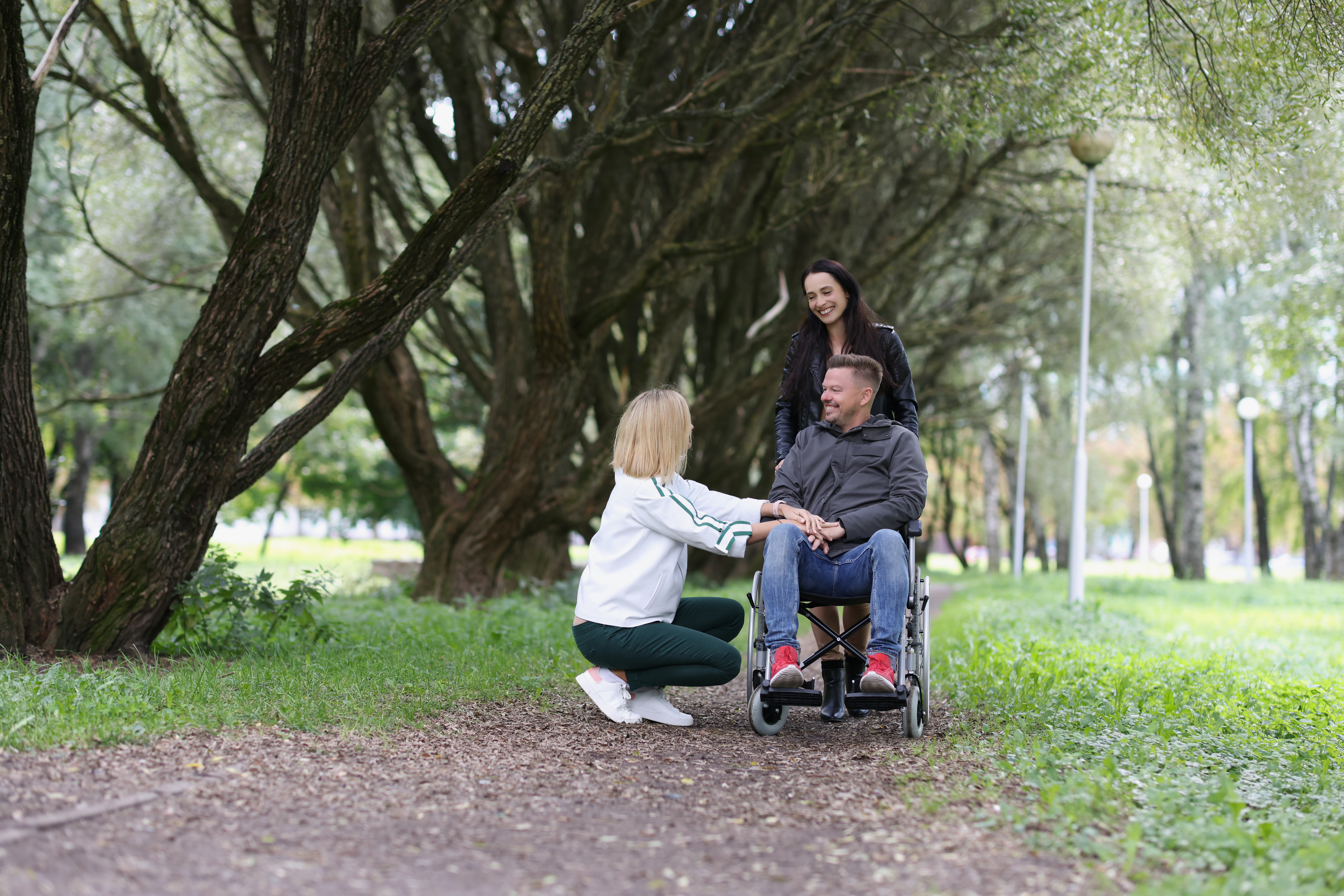Co(l)laboratory 2025 PhD Project

Key Details
Project Title: Establishing and evaluating a person-centred approach to supporting individuals living with cognitive impairments in Nottingham
Deadline:11:59pm 8 December 2024
Host University: The University of Nottingham
School/department: School of Psychology
Start date: 01 April 2025
Funding offer: Tuition fees covered in full (worth approx. £15k across full PhD programme). Monthly stipend based on £19,237 per annum, pro rata, tax free.
Working hours: Full-time (minimum 37.5 hrs per week).
Working style: Primarily in-person at host university. Flexible working supported. Working pattern to be agreed between successful candidate and lead supervisor.
Project Supervisors
- Lead Academic Supervisor: Dr Jan Derrfuss (UoN)
- Academic Co-Supervisor: Dr Isibor Kennedy Ihianle (NTU)
- Academic Co-Supervisor: Dr Kate Roberts (NTU)
- Community Supervisor(s): Dr Kerry Burvill (Nottingham University Hospitals Trust), Charlotte Leask (Headway Nottingham)
About The Project
This project aims to support individuals living with cognitive impairments in Nottingham. Cognitive impairments can result from conditions such as traumatic brain injury, stroke, and dementia are more common in older populations. These conditions can lead to challenges with attention, memory and executive functions. Impairments of these cognitive functions can significantly impact individuals’ daily living activities, decreasing quality of life. This project seeks to use technological solutions as a flexible and cost-effective way to provide support where long-term support and monitoring are currently lacking.
“Ageing in place” is a key component of the UK’s ageing policy (Office for Health Improvement & Disparities, 2023). However, there are stark regional differences in the degree to which older people will be able to achieve this aim. In Nottingham, all constituencies have high percentages of adults 50 and over who are described as “struggling and vulnerable” (Consumer Data Research Centre, 2024). While services like the Linden Lodge Neurorehabilitation Unit and Headway offer crucial support, there remains a substantial gap in providing scalable, personalised, technology-driven solutions for use in daily life to enhance independence.
This PhD will evaluate the needs of individuals through interviews, questionnaires and cognitive tests. Based on these insights, interventions will be developed and implemented together with their family/caregivers. By addressing the gaps in current support systems, this research aims to enhance the quality of life for individuals with cognitive impairments in Nottingham by enabling them to live safely at home for longer, reducing caregiver burden and the burden on support services.
This project has been co-created and is supported by researchers from Nottingham Trent University (NTU), the University of Nottingham (UoN) and partners at Nottingham University Hospitals Trust and Headway Nottingham. The successful candidate for this project will be enrolled at the University of Nottingham.
Project Aims
The overall aims of the project are:
- To evaluate and monitor the cognitive impairments in individuals with brain injuries using existing and bespoke tasks.
- To design and implement customised technological interventions tailored to individual needs to improve daily functioning and prolong independent living.
- To monitor the effectiveness of the interventions and adjust based on cognitive assessments and participant feedback.
- To improve the overall quality of life for individuals and their caregivers through sustained support and innovative solutions.
- To engage community stakeholders to inform the research, and share findings and best practice, promoting scalability and sustainability of successful interventions.
Competencies
| Co(l)laboratory Core Competencies | ||
| Category | Competency | Assessed: Application (A), Interview (I) |
| Comprehension and evaluation | Strong understanding of the project and its subject matter. | A / I |
| Analytical, researcher mindset with keen attention to detail. | A / I | |
| Communicate complex concepts with clarity and precision. | A / I | |
| Able to identify connections, patterns, gaps, and irregularities in information/data. | I | |
| Able to interpret data/information confidently with logic and empathy to derive meaning. | I | |
| Social and emotional | Demonstrable experience of responding effectively changing contexts, information and demands. | A |
| Ability to persevere in the face of challenges/failures and to remain constructive in developing solutions. | A | |
| Demonstrable passion for learning with clear drive and curiosity to undertake this specific research project. | A / I | |
| Willingness to immerse oneself in the research subject matter and make a contribute to new knowledge through a PhD. | A / I | |
| Strong desire to make a positive community impact through the research. | A / I | |
| Willingness to think deeply about complex concepts and engage with academic ideas and theory. | A / I | |
| Preparedness and potential for success | Experience of working and collaborating effectively with different stakeholders. | A |
| High level of self-motivation and ability to work with minimal guidance. | A / I | |
| Strong organisational and time-management skills with the ability to balance and prioritise multiple tasks. | A / I | |
| Ability to identify potential challenges and complexities and thoughtfully consider possible solutions. | A / I | |
| Able to identify the technical, personal, or professional skills required for a task and take action to develop these. | A / I | |
| Community Context | Genuine desire to undertake community-engaged research over more traditional approaches to research. | A |
| Understand the impact of and need for the inclusion of diverse experiences and points of view in research. | A / I | |
| Appreciation/understanding of the importance of community insight and experience in the generation of new knowledge. | A / I | |
| Awareness/understanding of the broader societal context related to the subject matter of the project. | A / I | |
| Project Specific Competencies | |||
| Essential | Assessed: Application (A), Interview (I) | Desirable | Assessed: Application (A), Interview (I) |
| Strong digital skills with the ability to quickly learn and work with new digital tools and technology. | A / I | Experience of engaging with people living with cognitive impairments (i.e., social care, healthcare, personal, etc.) | A / I |
| Appreciation of the challenges faced by those living with cognitive impairments. | A / I | Experience with or knowledge of user interface or user experience design skills. | A / I |
| Ability to engage with sensitive topics with empathy and compassion. | A / I | Relevant professional, academic, or other background in psychology, healthcare, etc. | A / I |
| Appreciation of current landscape of support for those living with cognitive impairment. | A / I | ||
References for Further Reading
- Bytautas, J., Grigorovich, A., Carson, J., Fowler, J., Goldman, I., Harris, B., Kerr, A., Marcotte, A.-A., O’Doherty, K., Jenkins, A., Kirkland, S., & Kontos, P. (2024). Conversation for change: Engaging older adults as partners in research on gerotechnology. Research Involvement and Engagement, 10(1), e27. https://doi.org/10.1186/s40900-024-00557-3
- Chudoba, L. A., Church, A. S., Dahmen, J. B., Brown, K. D., & Schmitter-Edgecombe, M. (2020). The development of a manual-based digital memory notebook intervention with case study illustrations. Neuropsychological Rehabilitation, 30(9), 1829–1851. https://www.ncbi.nlm.nih.gov/pmc/articles/PMC6825881/
- Kastl, A., Rauner, Y. N., Mayer-Huber, S., Oestreich, C., Benstetter, F., & Fettke, U. (2024). Stakeholder needs assessment for developing ageing in place solutions – a qualitative study. BMC Geriatrics, 24(1), e104. https://doi.org/10.1186/s12877-024-04722-x
- Kim, D., Bian, H., Chang, C. K., Dong, L., & Margrett, J. (2022). In-home monitoring technology for aging in place: Scoping review. Interactive Journal of Medical Research, 11(2), e39005. https://doi.org/10.2196/39005
- Ollevier, A., Aguiar, G., Palomino, M., & Simpelaere, I. S. (2020). How can technology support ageing in place in healthy older adults? A systematic review. Public Health Reviews, 41(1), e26. https://doi.org/10.1186/s40985-020-00143-4
- Stolwyk, R. J., Mihaljcic, T., Wong, D. K., Hernandez, D. R., Wolff, B., & Rogers, J. M. (2024). Post-stroke cognition is associated with stroke survivor quality of life and caregiver outcomes: A systematic review and meta-analysis. Neuropsychology Review. Advance online publication. https://doi.org/10.1007/s11065-024-09635-5
